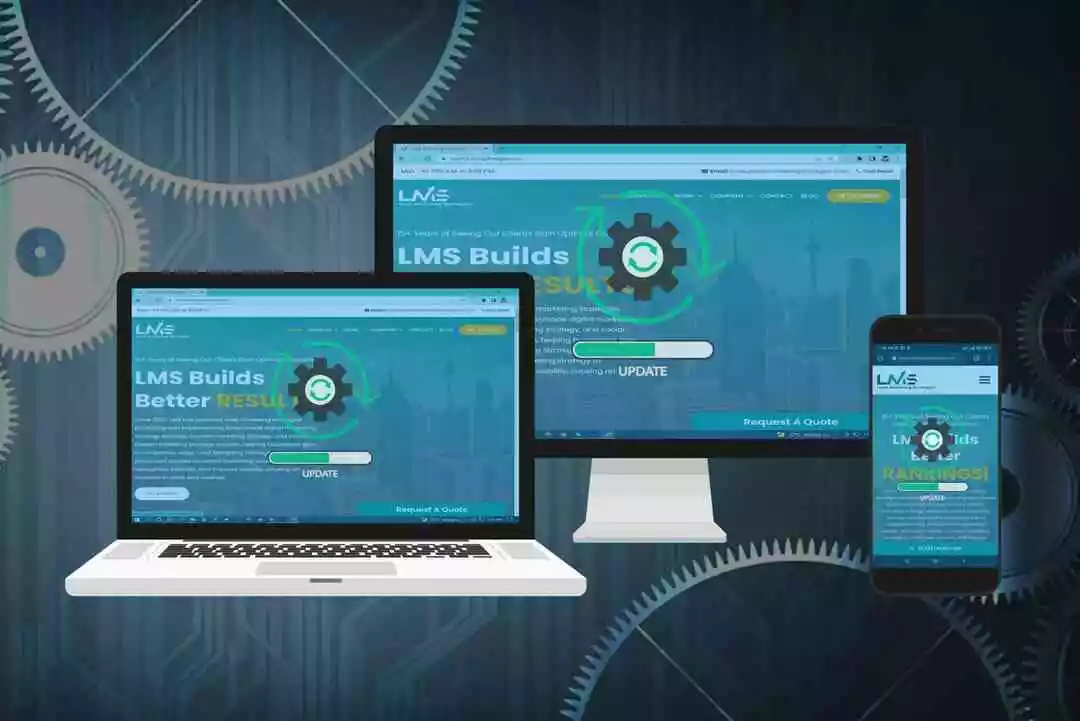
Introduction: Navigating the Dynamic Healthcare Marketing Terrain
The Evolution of Healthcare Marketing in the Digital Age
In recent years, healthcare marketing has undergone a significant transformation. The advent of digital technology has ushered in a new era where traditional methods are increasingly supplemented by digital health marketing. This shift has empowered healthcare organizations to reach a broader audience and engage with patients more efficiently. Furthermore, the rapid development of online platforms and tools has provided numerous opportunities for marketers to hone their strategies and address the unique challenges posed by the dynamic healthcare environment. Learn more about Understanding the Future of SEO in Long Island’s Economy.
Unveiling the Vital Role of Lead Marketing Strategies
Lead Marketing Strategies plays a pivotal role in modern healthcare marketing by offering a comprehensive suite of services. From targeted advertising to patient-centric content, leveraging sophisticated healthcare marketing solutions is vital for success in today’s competitive landscape. With a focus on enhancing brand awareness and patient engagement, these strategies help healthcare providers effectively communicate their value propositions. The diverse range of services provided by Lead Marketing Strategies allows organizations to fully capitalize on digital innovations and stay ahead in the market.
Aligning Patient-Centric Approaches with Digital Innovations
The emphasis on patient-centric marketing in healthcare has never been more pronounced. By integrating cutting-edge techniques with a deep understanding of patient needs, healthcare providers can foster loyalty and trust. Aligning these approaches with digital innovations ensures a seamless experience for patients and enhances the overall effectiveness of marketing efforts. As technology continues to advance, the potential for personalized and patient-centric marketing in healthcare grows exponentially, offering unprecedented opportunities to connect meaningfully with patients.
Crafting Cutting-Edge Healthcare Marketing Strategies
Adapting to Healthcare Marketing Trends for Enhanced Impact
In today’s rapidly evolving landscape, staying abreast of healthcare marketing trends is essential for any healthcare organization aiming to enhance its impact. As digital health marketing continues to gain traction, healthcare providers must recognize the shifts in consumer behavior and preferences. Adoption of modern tools such as AI and data analytics can lead to more targeted and effective campaigns. By leveraging data-driven insights, healthcare marketers can better understand patient needs and tailor their strategies accordingly. Understanding these trends also helps organizations to anticipate future shifts and remain competitive in an ever-changing environment.
Healthcare marketers are learning the significance of digital marketing in healthcare transformation and how it can drive engagement and conversion rates significantly. Utilizing tools such as social media platforms and advanced content creation enhances brand visibility and patient interaction. Trends such as personalized marketing, mobile optimization, and interactive content are redefining the healthcare marketing paradigm. As marketers adapt to these emerging trends, organizations can achieve measurable results that translate into sustainable growth and patient satisfaction.
Patient Engagement Strategies: Building Trust and Loyalty
One of the cornerstones of successful healthcare marketing is the implementation of effective patient engagement techniques. In an industry where trust is paramount, building strong relationships with patients is integral to a healthcare provider’s success. Techniques that focus on two-way communication and patient-centric content foster a sense of loyalty and trust.
Patients today are more informed and empowered than ever before. They are active participants in their healthcare journey, seeking reliable information and personalized experiences. To meet these expectations, healthcare marketers must prioritize transparency and clear communication to build trust. Employing digital strategies like informative newsletters, targeted emails, and patient feedback systems can significantly enhance patient engagement.
By catering to patients’ needs and preferences, healthcare organizations can create a more satisfying experience that enhances loyalty. Additionally, understanding and addressing patient concerns through tailored approaches ensures that marketing efforts resonate effectively, leading to higher retention rates and positive word-of-mouth referrals.
Harnessing Medical SEO Tactics for Digital Visibility
Achieving digital visibility in the overcrowded healthcare sector requires the strategic application of SEO tactics in healthcare. With more patients turning to online search engines to find medical information and services, having a robust SEO strategy is crucial.
Keyword optimization, local SEO, and content relevancy are pillars of a strong healthcare SEO approach. By targeting specific medical terms and optimizing online presence, healthcare organizations can enhance their search engine rankings and attract a broader audience. Creating valuable, informative content that addresses patient queries not only boosts visibility but also establishes authority and credibility in the field.
Furthermore, updating website designs to be mobile-friendly and enhancing page load speeds are vital technical SEO tactics. These not only improve user experience but also positively influence search engine performance. By embracing advanced SEO tactics, healthcare providers can ensure they are readily accessible to potential patients who are seeking reliable healthcare solutions.
Integrating Healthcare Branding Insights for Cohesive Messaging
Crafting a cohesive and compelling brand message is essential in differentiating a healthcare organization in a crowded market. Through strategic healthcare branding insights, healthcare providers can cultivate a strong brand identity that resonates with patients.
Brand consistency across all channels-from social media to print materials-ensures patients receive a uniform message, enhancing trust and recognition. Healthcare branding goes beyond just a logo or tagline; it encompasses the core values and mission that the organization stands for, directly influencing patient perception.
By utilizing branding insights, healthcare marketers can tailor their messaging to align closely with patient expectations, improving engagement and loyalty. Effective branding strategies should reflect organizational expertise and empathetic patient care, creating a powerful narrative that appeals to diverse patient demographics. The integration of branding insights into marketing endeavors not only elevates brand perception but also contributes significantly to long-term success.
Leveraging Advanced Healthcare Digital Strategies
Healthcare Digital Transformation: A Pillar for Success
Digital healthcare transformation has become the linchpin for success in the modern healthcare industry. With innovative solutions and cutting-edge technologies, healthcare providers are experiencing a profound shift in how they deliver services and engage with patients. By deploying digital healthcare transformation, organizations are optimizing their operations and enhancing their competitive edge.
The pivot to digital platforms has enabled seamless integration of sophisticated tools that improve operational efficiency and patient satisfaction. Healthcare providers are now leveraging technologies like telemedicine, electronic health records, and AI-driven diagnostics, which streamline processes and elevate care delivery. Organizations embracing this transformative wave can better adapt to patient needs, positioning themselves as leaders in the healthcare space.
Innovative Patient-Centric Marketing Approaches
In today’s healthcare landscape, patient-centric marketing has emerged as a crucial strategy for enhancing patient satisfaction and loyalty. By developing marketing approaches that focus on patient needs and preferences, healthcare providers can create meaningful connections and foster long-term trust. These strategies include personalized content, interactive communication channels, and empathetic messaging that resonate with diverse patient demographics.
Innovative tools such as patient portals and mobile apps are transforming how patients interact with healthcare providers. These technologies empower patients to manage appointments, access medical information, and engage directly with their healthcare providers, promoting an active partnership in their healthcare journey. Tailoring marketing efforts to match these digital tools ensures an enriched patient experience, leading to greater brand loyalty and positive engagement outcomes.
Digital Patient Journey: Enhancing Experience and Satisfaction
Creating a seamless digital patient journey is critical to enhancing overall patient experience and satisfaction. From initial engagement to post-care follow-up, every touchpoint in the digital journey should be carefully designed to meet patient expectations and streamline their interactions with healthcare services.
Personalized, data-driven insights gleaned from digital interactions allow healthcare marketers to craft unique experiences tailored to individual patient needs. By analyzing patient behaviors and preferences, healthcare organizations can optimize their digital presence, enhance website user experience, and provide targeted, relevant content. This approach not only increases satisfaction but also drives better health outcomes as patients become more involved and informed about their care.
Navigating HIPAA-Compliant Marketing in a Digital World
The need for HIPAA-compliant marketing is paramount in today’s digital-first healthcare environment. To ensure compliance while maximizing marketing effectiveness, healthcare providers must implement robust strategies that protect patient information and privacy. This involves using secure platforms and best practices that adhere to HIPAA regulations while still engaging patients through innovative marketing channels.
By integrating HIPAA-compliant marketing techniques, healthcare organizations can build trust and credibility with their patients. This often involves securing patient data with encryption, obtaining necessary patient consents, and safeguarding data across email campaigns and social media interactions. Navigating this landscape with compliance in mind allows healthcare marketers to confidently expand their outreach and enhance patient engagement while maintaining ethical standards.
Optimizing Healthcare Advertising and Outreach
Executing Impactful Healthcare Advertising Campaigns
Developing impactful advertising campaigns for healthcare organizations is essential to reach and engage patients effectively. A well-strategized campaign begins with understanding the target audience and crafting messages that resonate with their needs and preferences. Implementing digital advertising techniques like pay-per-click (PPC) and programmatic ads ensures that your campaigns reach the desired audience at the right time, enhancing engagement and conversion rates.
Healthcare organizations must also consider multi-channel marketing to amplify their message across various platforms. This approach not only broadens reach but also reinforces brand awareness. Creative and engaging content tailored to patient interests can further magnify the impact of advertising campaigns, leading to measurable results. The integration of advertising campaigns for healthcare helps bridge the gap between healthcare providers and their patients, fostering increased trust and loyalty.
Telemedicine Marketing: Bridging the Gap in Patient Care
Telemedicine marketing plays a crucial role in extending healthcare services beyond traditional settings, positioning organizations as pioneers in patient care. With the ongoing advancements in digital technology, telemedicine has emerged as a vital tool to access healthcare services remotely. This shift has revolutionized how care is delivered, ensuring patients receive timely consultations and assistance without the need for in-person visits.
Effective telemedicine marketing strategies involve highlighting the benefits of virtual healthcare, such as convenience, accessibility, and cost-effectiveness. Tailoring marketing efforts to address patient concerns and queries about telemedicine can enhance patient engagement and satisfaction. By embracing digital platforms, healthcare providers can bridge the gap in patient care, ensuring comprehensive healthcare delivery and fostering an improved patient experience.
Engaging Audiences Through Healthcare Social Media Tactics
Utilizing social media in healthcare can transform how providers interact with patients, offering platforms for engagement, education, and community building. Social media platforms provide opportunities for real-time communication and feedback, allowing healthcare organizations to build a rapport with their patient base. By employing social media healthcare strategies, healthcare marketers can craft campaigns that engage audiences on a personal level.
Crafting relevant and informative content that aligns with patient interests and health management can enhance social media presence. Platforms like Facebook, Instagram, and Twitter are ideal for sharing health tips, patient stories, and organizational values. Interactive elements such as polls, live Q&A sessions, and video content can actively engage audiences, creating a dynamic online community. Furthermore, consistent messaging across social media channels reinforces brand awareness and amplifies the organization’s mission and values.
Utilizing Healthcare Influencer Strategies for Broader Reach
Influencer marketing is a powerful tactic in extending healthcare marketing reach, leveraging trusted voices to promote healthcare services and initiatives. By collaborating with healthcare professionals, patients, or influencers with significant social media followings, organizations can effectively disseminate their message and engage potential patients.
Healthcare influencers provide authentic endorsements that can sway patient decisions and build trust in the brand. Crafting partnerships with influencers who align with the brand’s values and mission is essential for genuine content that resonates with target audiences. Influencer campaigns offer the unique advantage of reaching niche audiences, ensuring high-impact visibility across digital platforms.
By incorporating influencer strategies into healthcare marketing campaigns, organizations can expand their reach significantly and establish themselves as leaders within the healthcare community. The personalized touch that influencers add transforms marketing efforts into genuine conversations, enhancing patient engagement and loyalty.
The Future of Healthcare Marketing: Innovating for Tomorrow
Emerging Healthcare Lead Acquisition Techniques
In a rapidly evolving market, implementing innovative strategies for healthcare lead acquisition is crucial for sustained success. Healthcare organizations must develop approaches that align with shifting consumer behaviors and technology. Utilizing predictive analytics and AI-driven insights allows marketers to understand patient behavior patterns and develop targeted strategies. These advancements help healthcare providers identify prospective leads more accurately, resulting in higher conversion rates. Additionally, social listening techniques enable organizations to engage with potential patients in real time, addressing their concerns and building trust. By continuing to innovate in lead acquisition, healthcare marketers can ensure a steady influx of patients and maintain competitive advantages.
Harnessing Healthcare Analytics Tools for Data-Driven Decisions
The integration of healthcare analytics tools has become indispensable for making informed decisions. These tools offer valuable insights into patient demographics, preferences, and engagement trends, enabling healthcare marketers to tailor their strategies effectively. By leveraging advanced analytics, organizations can predict patient needs, optimize resource allocation, and enhance marketing efforts. Real-time data helps healthcare marketers adjust campaigns promptly, ensuring maximum impact. Furthermore, these tools allow for performance measurement and evaluation, driving continuous improvement in marketing strategies. Embracing data-driven decision-making empowers healthcare organizations to stay relevant and connected to their patient base, facilitating growth and success.
Exploring the Benefits of Healthcare CRM Systems
Customer Relationship Management (CRM) systems in healthcare facilitate streamlined communication and personalized patient engagement. Implementing CRM benefits in healthcare revolutionizes how patient data is managed, enabling efficient follow-ups and interactions. These systems provide a centralized platform for storing patient information, simplifying access for healthcare providers. Personalization is enhanced as healthcare marketers can tailor communications and services, ensuring patient satisfaction and loyalty. CRM systems also support marketing automation, allowing seamless execution of campaigns and efficient tracking of patient interactions. By improving operational efficiencies and fostering closer relationships with patients, CRM systems contribute significantly to healthcare marketing success.
Designing Compelling Healthcare Video Marketing Campaigns
The rise of digital media has positioned video as a powerful tool in healthcare marketing. Developing healthcare video campaigns with engaging content captures patient attention and conveys complex information effectively. Videos offer a dynamic way to showcase patient testimonials, explain medical procedures, and educate patients on health topics. These campaigns boost engagement, as visual content attracts more attention than traditional marketing media. Leveraging platforms like YouTube and social media enhances reach and reinforces brand presence. Additionally, videos can be optimized for search engines, aiding discoverability and broadening audience reach. Crafting compelling video content aligns healthcare providers with emerging digital trends, ensuring they remain at the forefront of patient engagement and acquisition initiatives.
Conclusion: Embracing Digital Innovations for Healthcare Marketing Success
Synthesizing Strategies for Sustainable Growth and Engagement
To achieve success in the evolving landscape of healthcare marketing, integrating diverse strategies is paramount. Look into Lead Marketing Approaches to E-commerce Success in 2024. Effective lead marketing strategies prioritize sustainable growth and patient engagement, combining various digital marketing techniques to create cohesive campaigns. By leveraging tools such as telemedicine marketing and healthcare influencer strategies, healthcare providers can broaden their reach and actively engage with patients. The synergy of these tactics ensures a robust marketing approach, resulting in substantial growth and enduring patient relations.
Healthcare organizations are encouraged to adopt an interdisciplinary mindset that incorporates modern marketing strategies like the hospital marketing techniques. Aligning these approaches with innovative digital tools is fundamental to creating an impactful brand presence. It is important for marketing strategies to evolve continuously, adapting to emerging trends and technologies, to sustain a competitive edge in the healthcare industry.
The Unyielding Importance of Adaptability in Healthcare Marketing
Adaptability emerges as a crucial trait for success in healthcare marketing. As the industry evolves, adapting marketing strategies to accommodate technological advancements and changing consumer behaviors is essential. Employing techniques such as data analytics and CRM systems enables healthcare marketers to personalize patient experiences and refine strategies in real time. Organizations that demonstrate flexibility in their marketing operations can swiftly respond to market changes, thereby enhancing patient satisfaction and brand loyalty.
Incorporating adaptability into healthcare marketing plans ensures that healthcare providers can seamlessly integrate emerging technologies and best practices. Digital marketing agencies specializing in digital marketing in healthcare are pivotal in guiding organizations to stay ahead of the curve. The ability to pivot and innovate allows healthcare marketers to effectively navigate the challenges and opportunities that arise in the dynamic healthcare ecosystem.
Pioneering Towards a Patient-Centric Future
The future of healthcare marketing is inherently patient-centric, focusing on creating meaningful relationships with patients while enhancing their overall experience. By utilizing advanced techniques such as personalized content and interactive communication, healthcare marketers can build trust and foster long-lasting connections with patients. This patient-centric approach is not merely a trend but a fundamental shift towards providing value-driven healthcare services.
Healthcare providers must strive towards embracing strategies that prioritize patient needs and preferences, propelling them toward a future where patient engagement is at the forefront of marketing initiatives. Employing web design in healthcare strategically enhances the user experience, ensuring that digital interactions are intuitive and informative. Ultimately, by prioritizing patient-centricity in their marketing endeavors, healthcare organizations can build a reputable brand identity that endures and grows over time.
Frequently Asked Questions
Question: How do Lead Marketing Strategies utilize healthcare marketing solutions to ensure competitive success in the digital health marketing landscape?
Answer: Lead Marketing Strategies emphasizes a patient-centric approach by leveraging advanced healthcare marketing solutions that are aligned with digital innovations. By employing sophisticated medical SEO tactics and leveraging social media platforms, our strategies aim to enhance brand awareness and patient engagement. We focus on crafting effective strategies that cater to the dynamic needs of healthcare providers and their patients, ensuring a robust online presence and measurable results that enhance competitiveness in the digital health marketing landscape.
Question: How does the concept of a digital patient journey feature in the strategies discussed in the blog titled How Lead Strategies Enhance Healthcare Marketing Success?
Answer: In the blog How Lead Strategies Enhance Healthcare Marketing Success, the digital patient journey is central to optimizing patient experience and satisfaction. At Lead Marketing Strategies, we leverage healthcare digital transformation to create a seamless journey for patients, from initial engagement to follow-up care. By harnessing healthcare analytics tools and patient engagement strategies, we ensure that every touchpoint in the patient’s journey is data-driven and personalized, fostering a patient-centric marketing approach that enhances experience and loyalty. Explore more on patient engagement strategies here.
Question: In what ways does Lead Marketing Strategies incorporate telemedicine marketing into its healthcare advertising campaigns?
Answer: Telemedicine marketing is an integral part of how we at Lead Marketing Strategies bridge the gap in patient care through innovative healthcare advertising campaigns. We highlight the convenience, accessibility, and cost-effectiveness of virtual healthcare services and address common patient concerns to enhance engagement and satisfaction. Learn more on effective marketing strategies for virtual healthcare services. By integrating telemedicine marketing into broader healthcare outreach methods, we help healthcare providers extend their reach and redefine patient interactions, ultimately leading to improved patient outcomes and loyalty.
Question: Can you elaborate on how Lead Marketing Strategies assists healthcare organizations in maintaining HIPAA-compliant marketing practices?
Answer: Ensuring HIPAA-compliant marketing is crucial for healthcare providers, and Lead Marketing Strategies excels in navigating this complex landscape. We employ robust marketing strategies that protect patient information while maximizing digital marketing effectiveness. This includes using secure digital platforms for patient communications and obtaining necessary patient consents. By adhering to HIPAA-compliant techniques, healthcare organizations can engage in social media healthcare strategies and leverage telemedicine services confidently, maintaining trust and credibility with their audiences.
Question: What role do healthcare branding insights play in influencing patient-centric marketing strategies at Lead Marketing Strategies?
Answer: At Lead Marketing Strategies, healthcare branding insights are pivotal in shaping patient-centric marketing strategies. Our approach focuses on creating cohesive and compelling brand messages that resonate with patients, thereby enhancing engagement and loyalty. By utilizing these insights, we help healthcare providers develop a strong brand identity that reflects their core values and expertise. Discover more about branding insights here. This alignment with patient expectations fosters a meaningful connection, positioning providers as trusted leaders in the healthcare industry while driving substantial growth and success.









